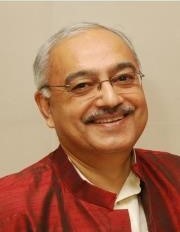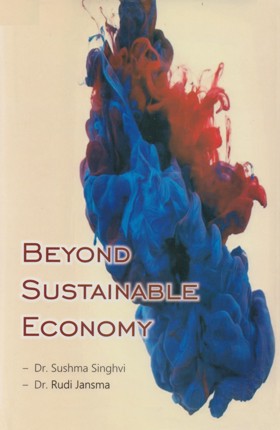Plato or Platon in Greek (427-347 BC) was one of the greatest philosophers of ancient Greece. He was a student of Socrates and a teacher of Aristotle. He belonged to an aristocratic family. Because of the excesses of the oligarchy and then the succeeding democratic government, he withdrew himself from the political field. After the death of Socrates in 399 BC, he shifted to Megara from Athens. After 12 years he visited Italy and Sicily and when he came back to Athens he established an Academy which was, perhaps, the first institution of higher education in the West. Soon he started writing his famous dialogues. These dialogues were in the form of questions and answers. Plato thought that the best way of teaching and making an enquiry was adopting a conversational mode in which questions were raised, answers were suggested, these answers were examined, if found inadequate, fresh questions were raised and fresh hypotheses were made and so the enquiry went on. Some of the early dialogues were related with the teachings and life of Socrates. Later dialogues were concerned with a variety of themes such as, virtues, friendship, courage, temperance, love and beauty, life in the city, opinion and knowledge and soul and cosmos. An interesting aspect of these dialogues is that Plato does not occur in any of them himself. In each dialogue the main speaker is Socrates. Whether he put forward the views of his master or of his own, in both the cases it is Socrates who is lent the voice.
While dealing with the disposition and character of the people who would qualify for managing or governing a city in a proper way, Plato drew a profile of a good person, and talked about the various qualities one should possess and inculcate. It is from this sketch of a good and ideal life style that we can indirectly construct how he would have viewed concepts of property and possession.
The idea of a good person is intimately linked with his concepts of knowledge and reality. He distinguished between visible and intelligible realms. It is the intelligible realm which has access to reality. He thought that whatever we experienced at the sensory level in the phenomenal world was in itself perishable, while its essence which could be grasped by reason alone belonged to the realm of being which was everlasting. This realm was subsumed under the supreme idea of Good, which he compared with the Sun in the visible world. Just as Sun is the source of light and life both, similarly the idea of Good is the source of all that is real and valuable.
Following the distinction between the phenomenal realm and the reality of being itself, and also the distinction between intelligibility and sensibility, Plato also thought of the human nature as constituted by a rational part, affective part and an appetitive part. The virtues which he believed to form the ideal disposition of a human being, corresponded to the affective and the rational part of human nature. Courage and temperance can be related to the affective part, while wisdom and justice can be associated with the rational part. In fact temperance can be treated as a controlling force which keeps the appetitive and the affective within limits. Obviously it is closer to the other two virtues related to the rational part.
Plato's idea was that if a set of individuals (whether male or female) were, in a rigorous manner, trained educated and developed according the various virtues, they could become the most qualified persons to manage the city, for they could manage themselves. Besides the inculcation of the virtues and acquiring true understanding and knowledge of the reality of being, that is, the Good, Plato required them not to have any possession in terms of property - stable or otherwise. The possessive case excluded even their progeny. Such an individual would not be able to say that, 'She is my wife, or he is my husband, or she or he is my daughter or son.' He seemed to believe that all evils - individual or social are a consequence of a desire to possess or own not merely things but even persons. It is not clear if such an ascetic and rigorous discipline was to be followed by all the members of the society. It seems probable that most members of the society were supposed to manufacture and produce the necessary provisions, so that the basic necessities and needs of survival could be met by a guardian class who would manage the city.
The following lines from Politiea or Republic are relevant in this context. Socrates asks: "What we have agreed, Glaucon, is that in the perfect state women and children should be held in common, that men and women should share the same education and the same occupations both in peace and war, and that they should be governed by those of their number who are best at philosophy and war... When our Rulers are appointed, they will take the soldiers and settle them in accommodation of the kind we described, where there are no private quarters but everything is common to all; and besides these arrangements for accommodation... they should possess none of the things other men now do; they were to train for war and act as Guardians over the community, in return for which they were to get their annual wage, and devote themselves to the care of their fellow-Guardians and the whole state.' (Book VIII, 543, a-c).
This much however is clear from the ideal picture of an individual or the society that he sketched in his famous dialogue called Politiea in Greek, that possessiveness or a desire to possess or own interfered with right approach to good and virtuous life and was seen as a source of all degradation and evil.
A famous dialogue between Socrates and Glaucon is published in this book under Section 2 as 'Socrates and Glaucon on the Effects of Parigraha.'
 Dr. Rudi Jansma
Dr. Rudi Jansma
 Rajendra Swaroop Bhatnagar
Rajendra Swaroop Bhatnagar
